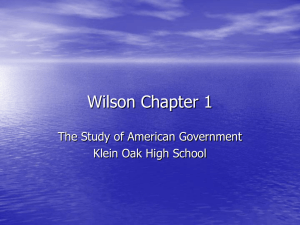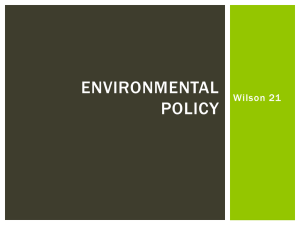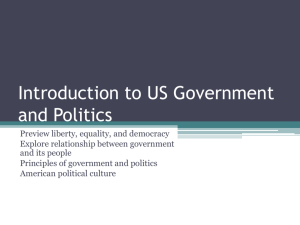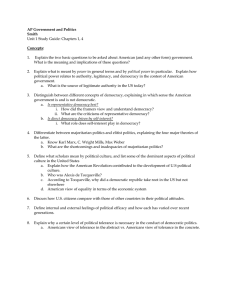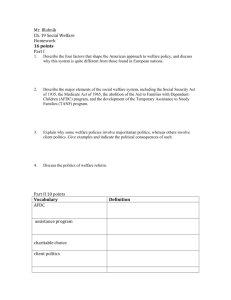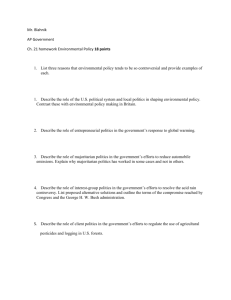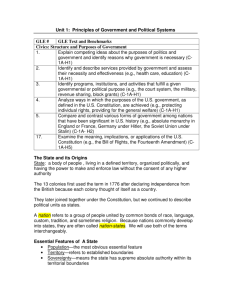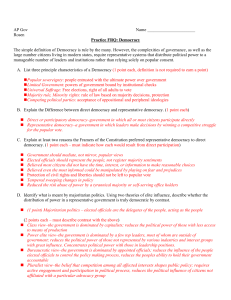Chapter 1- Study of American Govt
advertisement
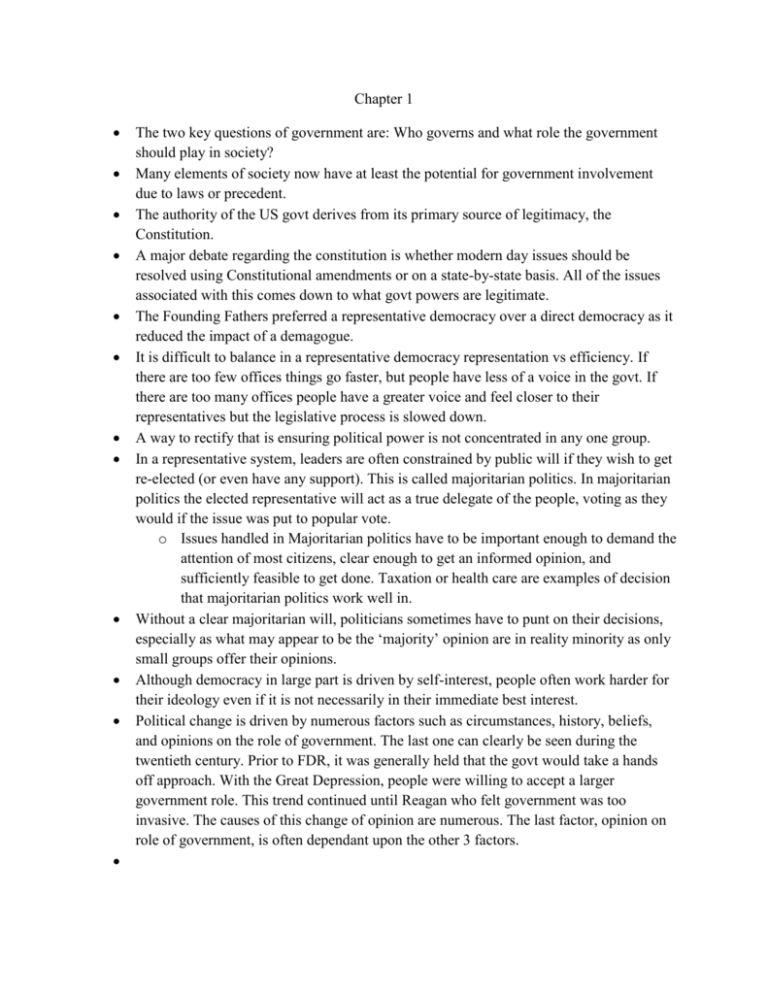
Chapter 1 The two key questions of government are: Who governs and what role the government should play in society? Many elements of society now have at least the potential for government involvement due to laws or precedent. The authority of the US govt derives from its primary source of legitimacy, the Constitution. A major debate regarding the constitution is whether modern day issues should be resolved using Constitutional amendments or on a state-by-state basis. All of the issues associated with this comes down to what govt powers are legitimate. The Founding Fathers preferred a representative democracy over a direct democracy as it reduced the impact of a demagogue. It is difficult to balance in a representative democracy representation vs efficiency. If there are too few offices things go faster, but people have less of a voice in the govt. If there are too many offices people have a greater voice and feel closer to their representatives but the legislative process is slowed down. A way to rectify that is ensuring political power is not concentrated in any one group. In a representative system, leaders are often constrained by public will if they wish to get re-elected (or even have any support). This is called majoritarian politics. In majoritarian politics the elected representative will act as a true delegate of the people, voting as they would if the issue was put to popular vote. o Issues handled in Majoritarian politics have to be important enough to demand the attention of most citizens, clear enough to get an informed opinion, and sufficiently feasible to get done. Taxation or health care are examples of decision that majoritarian politics work well in. Without a clear majoritarian will, politicians sometimes have to punt on their decisions, especially as what may appear to be the ‘majority’ opinion are in reality minority as only small groups offer their opinions. Although democracy in large part is driven by self-interest, people often work harder for their ideology even if it is not necessarily in their immediate best interest. Political change is driven by numerous factors such as circumstances, history, beliefs, and opinions on the role of government. The last one can clearly be seen during the twentieth century. Prior to FDR, it was generally held that the govt would take a hands off approach. With the Great Depression, people were willing to accept a larger government role. This trend continued until Reagan who felt government was too invasive. The causes of this change of opinion are numerous. The last factor, opinion on role of government, is often dependant upon the other 3 factors.
